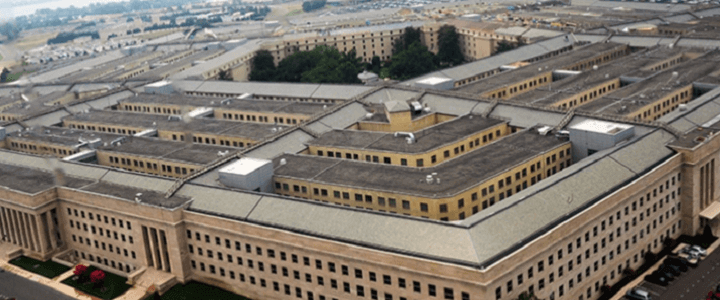We now know what House Armed Services Chairman Committee Chairman Adam Smith believes is, as I called it in December, “good enough” when it comes to military spending. The Washington Democrat released his “Chairman’s Mark” draft of the National Defense Authorization Act for Fiscal Year 2020 ahead of the full committee markup session Wednesday. The annual defense bill, which authorizes Department of Defense (and some Department of Energy) expenditures and sets defense policy, is, in the committee’s words, “the primary vehicle to execute Congress’s important constitutional obligation to ‘provide for the common defense.'”
As expected, Smith’s proposed “topline” budget is $733 billion, which is $17 billion less than the administration requested in the President’s budget. Contrarily, the Senate Armed Services Committee bill, which the committee approved quietly on May 23 (even I missed it initially), authorizes the president’s full $750 billion request.
Smith followed through on promises he made over the winter, which included severely limiting the Pentagon’s ability to modernize its nuclear forces, develop a “low-yield” submarine-launched warhead, and create “Space Force” as the sixth armed service. But despite holding the majority, his plan appears to be in for a rough ride.
Thornberry has an amendment ready
The ranking Republican member of the committee, former chairman Mac Thornberry of Texas, has already published an amendment he will put before the committee to restore the funds that Smith cut from the DoD request. And he might have the votes to get it done.
Thornberry cites “repeated testimony” from the military and civilian leadership at the Pentagon that defense spending must grow between three and five percent per year to keep pace with our two main security threats: Russia and China. “The Chairman’s Mark does not meet that standard,” he said in a statement. Thornberry’s amendment would give the Trump administration what it’s asking for.
A second bipartisan amendment worked out between Republican Rep. Mike Rogers of Alabama and Democratic Rep. Jim Cooper of Ohio would reverse Smith’s decision on Space Force (which, according to one staffer who spoke to DefenseOne.com, will likely be called Space Corps). Smith told reporters at the Defense Writers Group breakfast on Monday that the agreement simply came too late to be included in his draft. I’m not sure I believe him, since the Appropriations Committee’s bill specifically prohibits the creation of a separate service.
The Thornberry amendment might have the votes it needs to succeed despite what is certainly opposition from the chairman. “The importance of [passing the NDAA] being bipartisan cannot be overstated,” Speaking of his desire to limit the scope of our nuclear modernization, Smith said Monday at the Center for Strategic and international Studies think tank. “Now, you know, I can count and I don’t think I have the votes to change that policy.”
That seems to be the case on a few topics.
Playing into the president’s hands
The funny thing is, even at $733 billion, the Pentagon will make do. Because that’s all they were planning to ask for in the first place.
Things move so quickly these days that it’s easy to forget that last fall as the Pentagon was going through its “programming objective memorandum” process, it was working towards a $733 billion topline. But the president had a sudden bout of deficit fever, and directed everyone to cut their plans by five percent. That would have put the Pentagon at $700 billion, $17 billion below the current authorization.
The brass complained, and took their arguments across the river to the White House. The president was swayed by their arguments, and instead of a cut, he told them to ask for $750 billion. I was certain that Congressional Democrats would see through this tactic and insist on the lower number.
Instead, the “ask high settle in the middle” tactic is getting DoD the dollars it originally said it needed, even if not all of it is allocated to the right programs.
While we’re still in the early rounds, and congressmen are showing a greater appetite for compromise than I anticipated, I’m still not convinced we won’t be facing another shutdown in October.
I hope I’m wrong.


